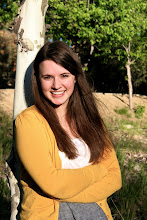 |
| This had to happen, too. I definitely support this. |
Please understand, I'm not supporting some sort of radical feminist movement here. I'm supporting something that God ordained from the very beginning-- that men and women are equal and both created in His image. Their roles are different, but they're equal. So yes, woot for us getting the vote and all that.Without going into too much detail, I just have to lay a little bit of that out in order for the rest of the post to follow (it's one of those fancy "sequences", like the board game Sequence. Which I never could figure out how to play. But hopefully you'll be able to follow this sequence. Anyway.) (And, also? Pictures again! I know how much you kiddos love pictures and have taken it into consideration).
If you look at stories, you basically have two types of female protagonists: the wimps and the butch. Into the "wimps" category would fall all the Disney princesses created before 1970 (Cinderella, Sleeping Beauty, Snow White), Lucie Manette from Dickens' A Tale of Two Cities (seriously, she is the worst), and, I gather, though not, fortunately, through first-hand experience, that Bella person from those Twilight stories. The wimps don't really do much. They sit around a lot, and they faint, and they are nothing without a man. (again, reiterating, I am not arguing that there is anything wrong with marriage or the man's authority therein. I am arguing against women who are weak and/or dumb.)
 |
| I mean...she's clearly not really the proactive type. |
 |
| You see that? That is the look of a man who is questioning his sexuality. |
And then there are women protagonists who are written as people. Of course, this is the way women should be written: not as women, but as people. And an example of this is, yes, Katniss from The Hunger Games-- a protagonist who behaves like a normal human would, not consciously basing her decisions at all times around her gender. Honestly, another example of this would be Jane Eyre, who does not conform to the standard proprietorial ways a woman should behave-- Jane is brutally honest and says exactly what is on her mind, which is one of her most intriguing qualities. E.M. Forster, despite his worldview flaws, wrote women extraordinarily well-- not ignoring their femininity, but merely including it as a part of who they are. Look at this sentence from Howard's End, wherein Margaret, his "toothy" and opinionated heroine is attempting to discern whether or not a man has feelings for her: "She put it to herself as indelicately as possible, in the hope that her brain would cry, 'Rubbish, you're a self-conscious fool!' But her brain only tingled a little and was silent." It is a sentence that rings true as the natural thing that a woman would think in such a situation; not merely because she is a woman, but because she is a woman in that situation. She needs to figure out how to deal with it. Like a regular person would.
 |
| It's obvious why Forster knew so much about women. The man was a stud. |
-- I feel I must mention this in passing before I conclude, and it is a confession which will, I fear, alienate almost everyone I know. I don't really care for Jane Austen's protagonists. I'm quite sure that Elizabeth Bennett is very charming and very forward-thinking, and I have an uncomfortably and unfortunately close kinship to Marianne Dashwood...I could just never take them seriously. No matter how shockingly impolitely they spoke, everything still seemed so confined to their miniscule societies that it was hard to feel the weight of any of it, if you know what I mean. I am confident that this lack of appreciation for Austen is a flaw on my part, as people who are far wiser than I am adore her. I just thought that her heroines merited mention, since she has written some of the most famous females in literature. Please don't hate me.
 |
| I mean...be honest...she's not exactly gonna survive the Hunger Games, ya know? |
I hope my hastily written and, in all probability, ill-thought out ideas make some sort of sense to you. But if they don't, a thousand pardons and please, feel free to tell me what you think of feminine protagonists: how ought authors to treat them? And etc. et. al.







No comments:
Post a Comment